Tag: Bees
-
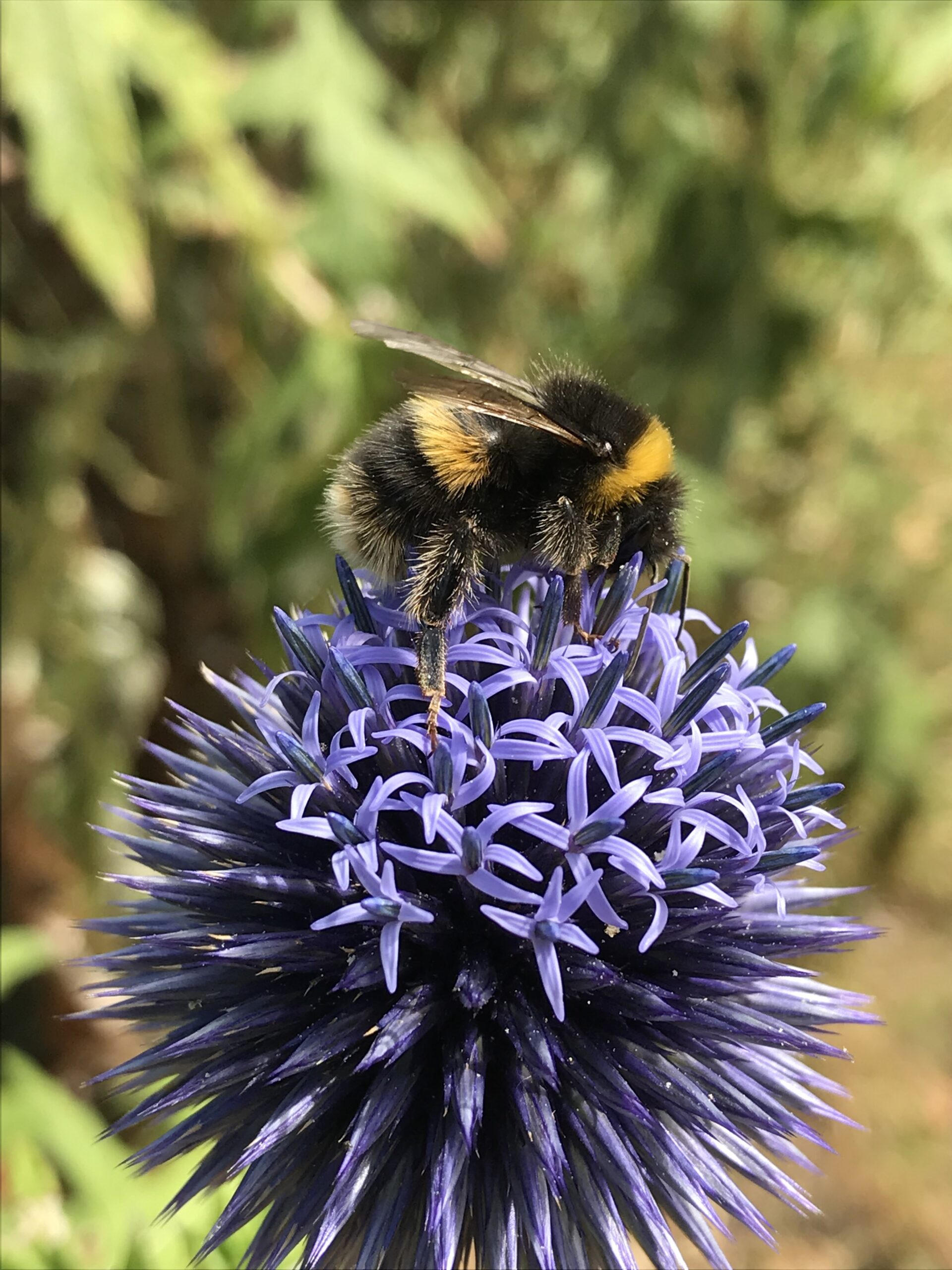
-
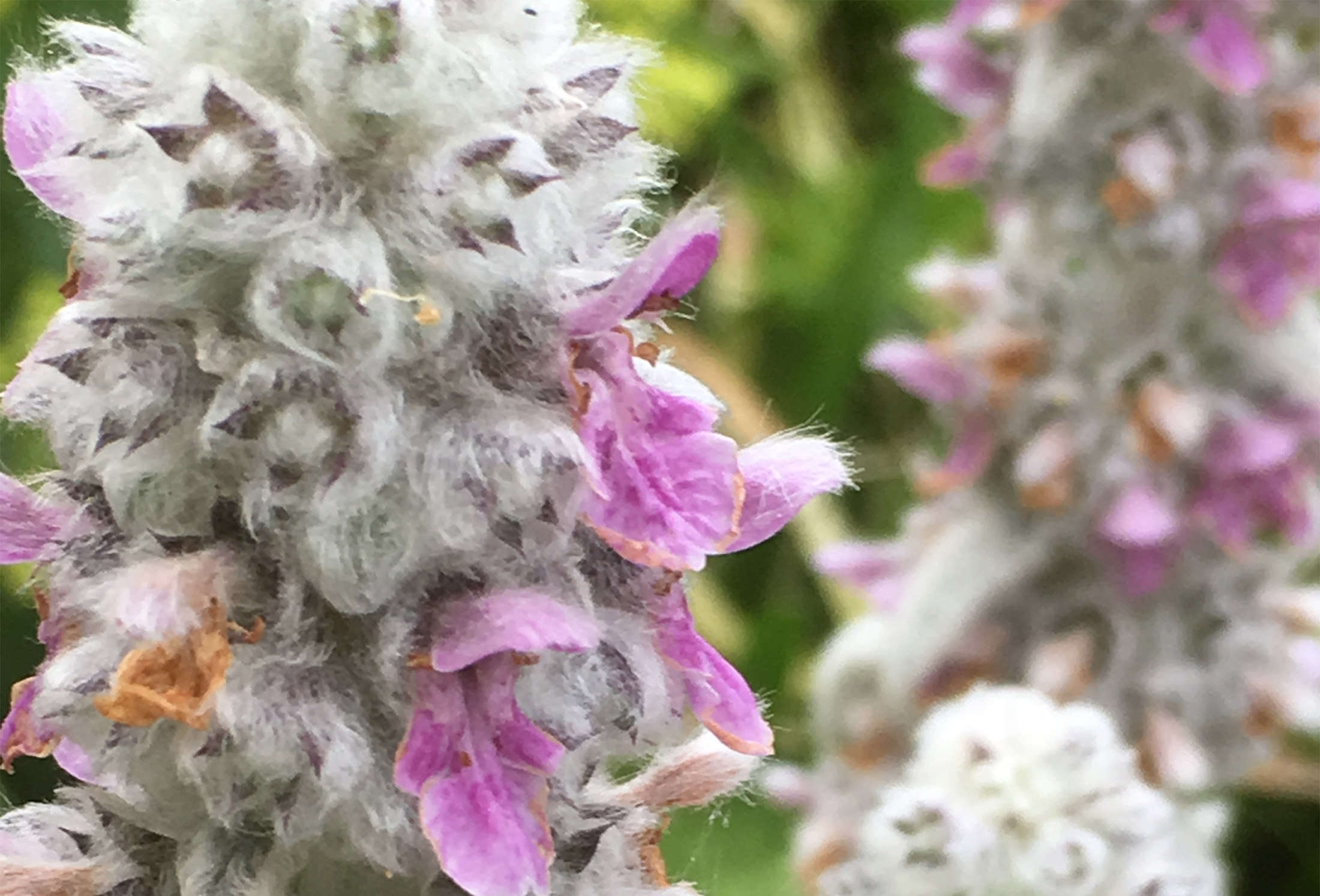
-
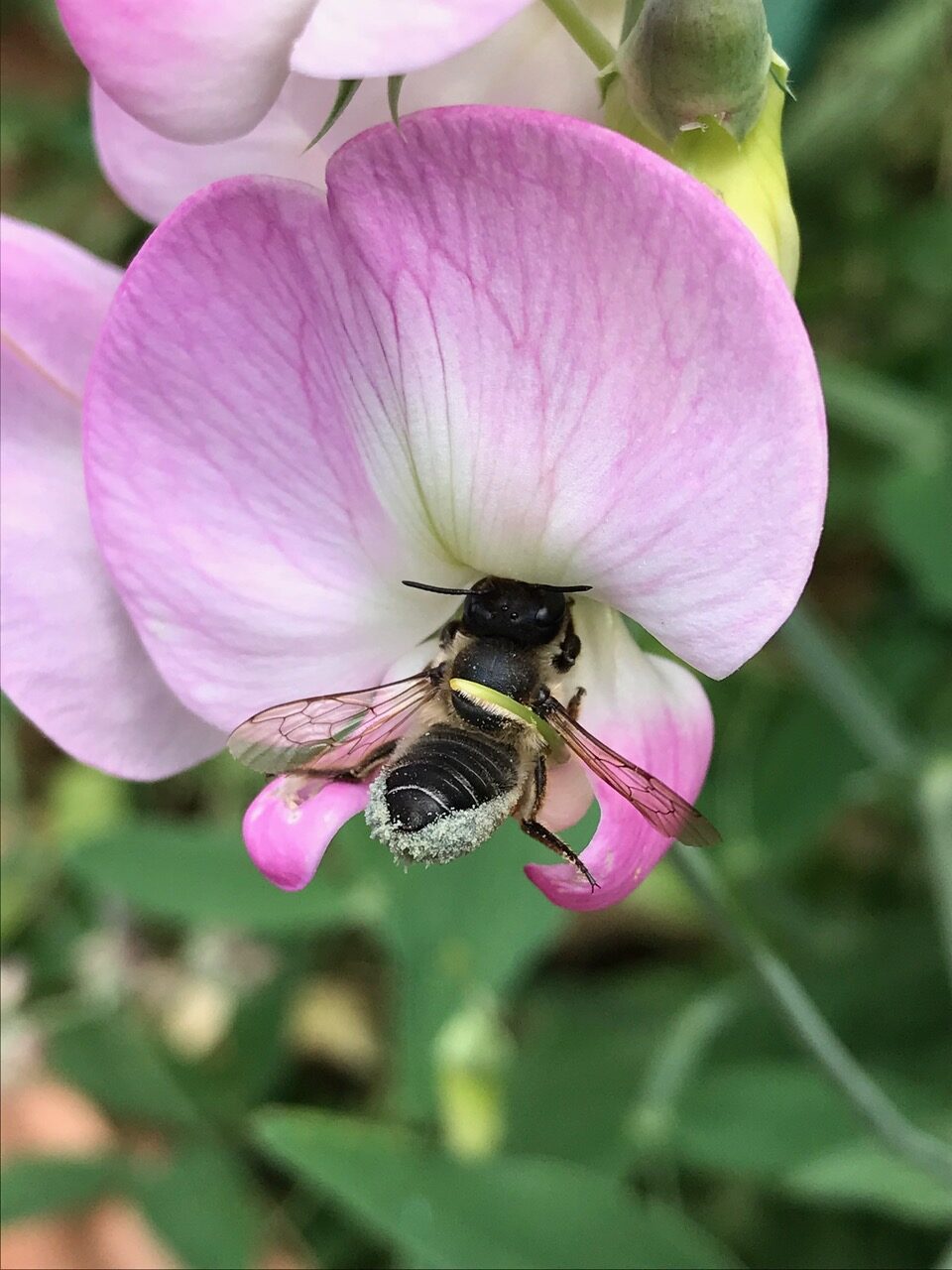
Leaf-Cutter Bees
Look out for the leaf-cutter bees in your June garden. You might notice the notches on your rose leaves.
-
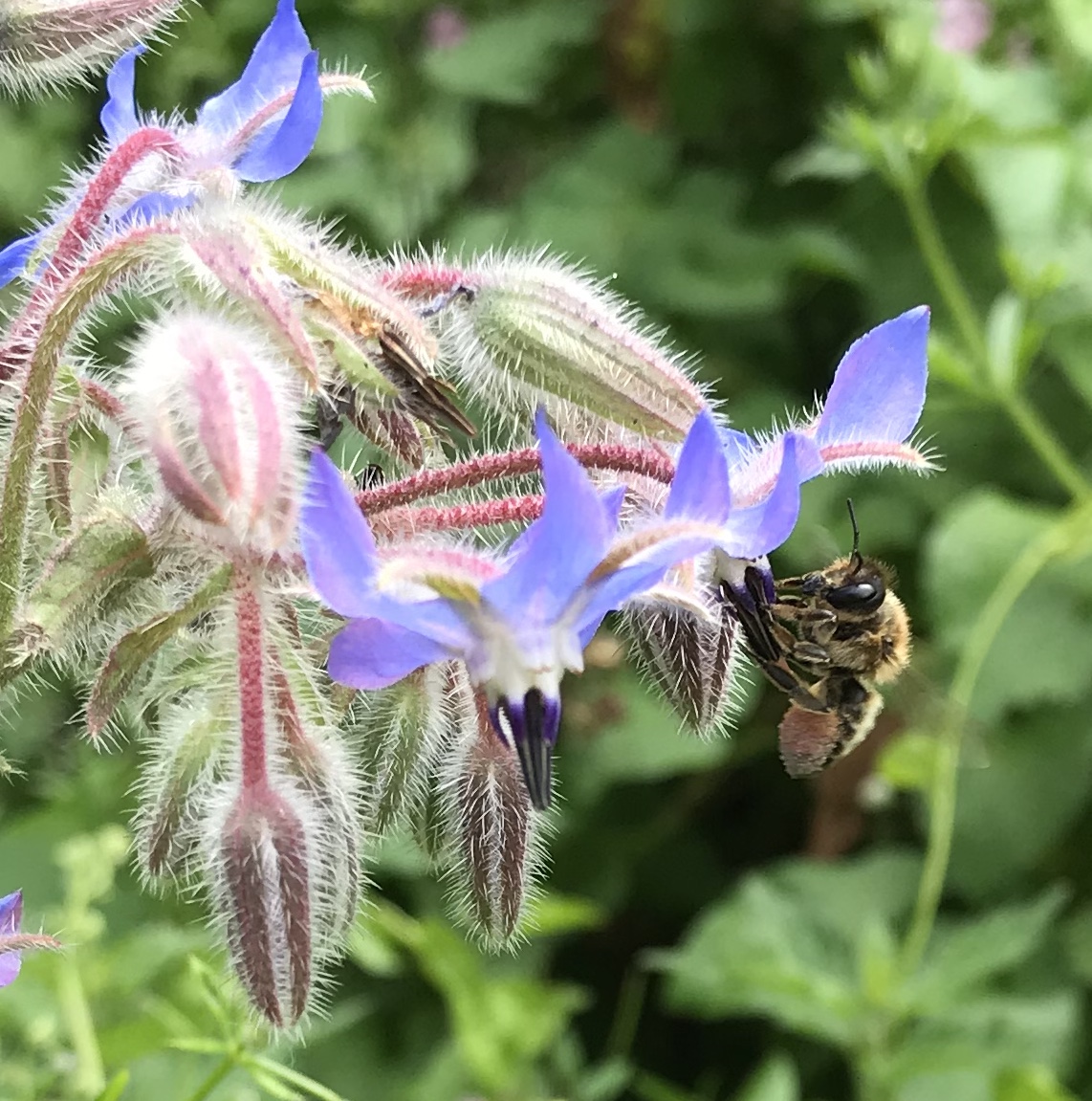
-
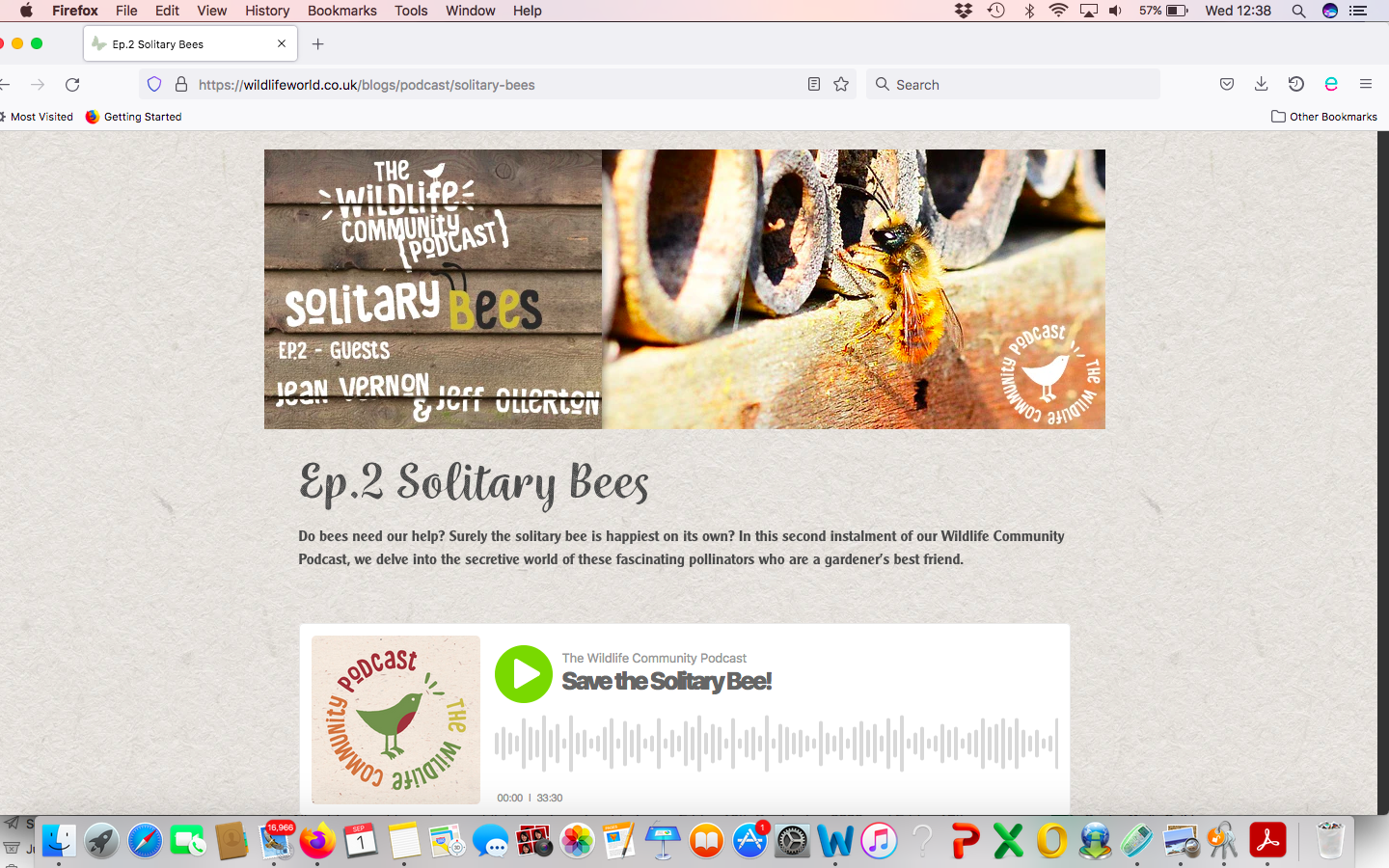
Solitary Bees Podcast
Here’s a great way to learn more about solitary bees. Listen in to the Wildlife World Community Podcast where Jean Vernon and Professor Jeff Ollerton talk about solitary bees
-
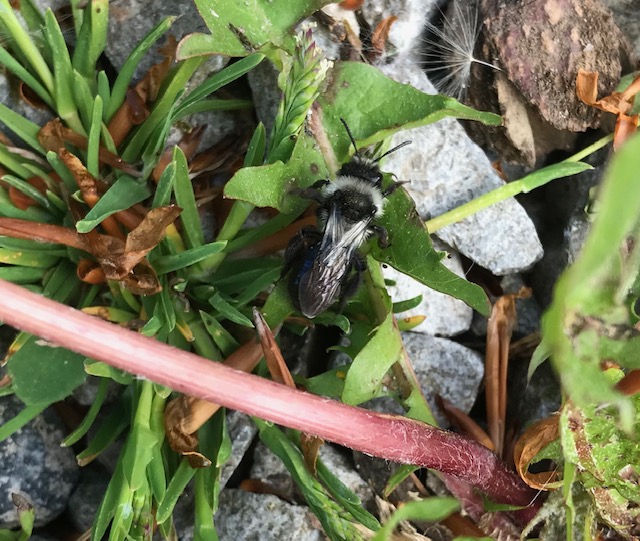
Ashy Mining Bee
The Ashy Mining bee is just one of the 65 or so Andrena species in the UK. These are the ground nesting bees that excavate their nests in close mown areas of the lawn, bare soil and sunny banks.
-
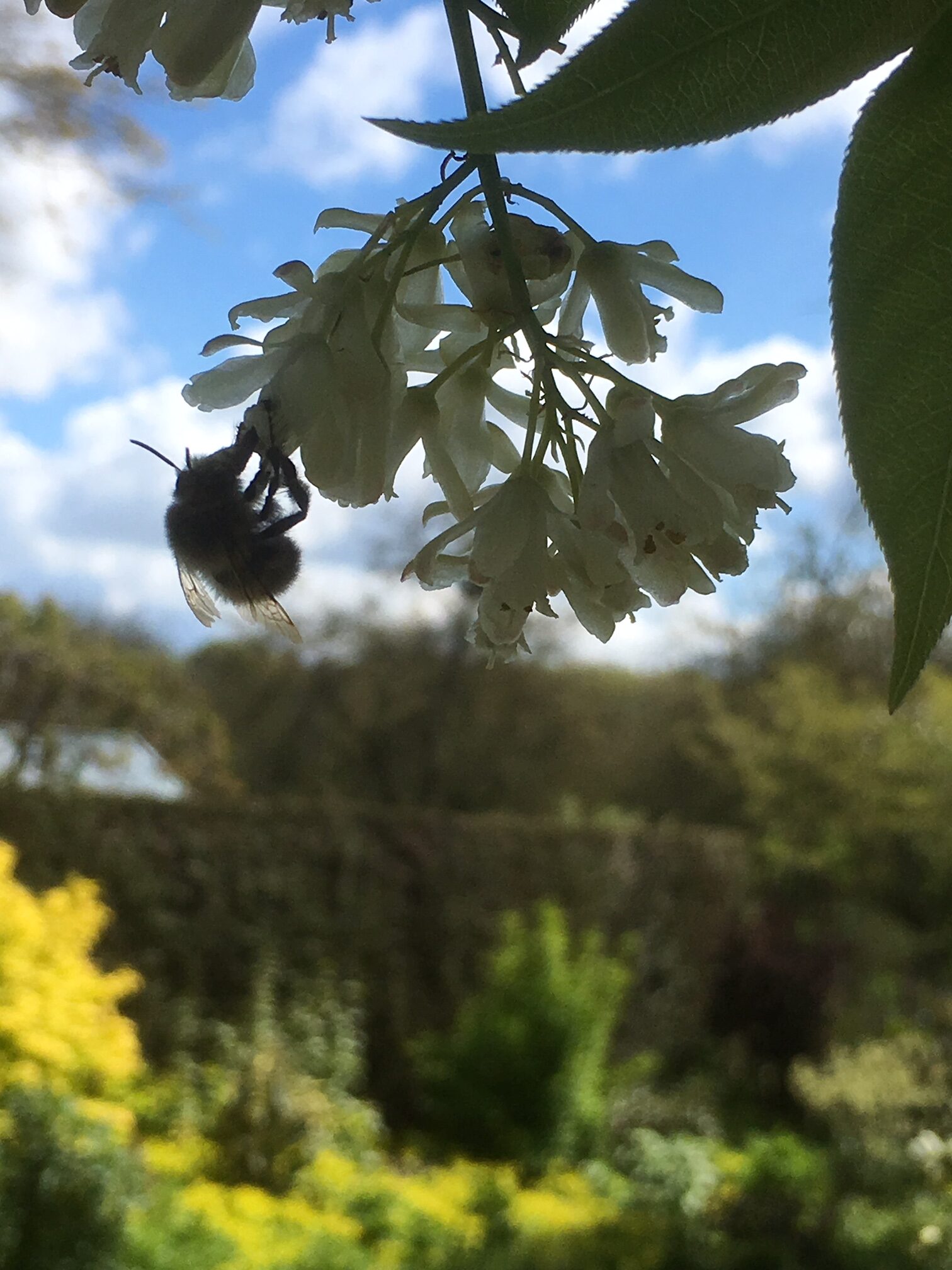
Hairy Footed Flower Bee
The Hairy Footed Flower Bee (Anthophora plumipes) is one of the earliest emerging solitary bees. By the end of February and into early March the male of the species climbs out of his egg chamber and into the sunlight.
-
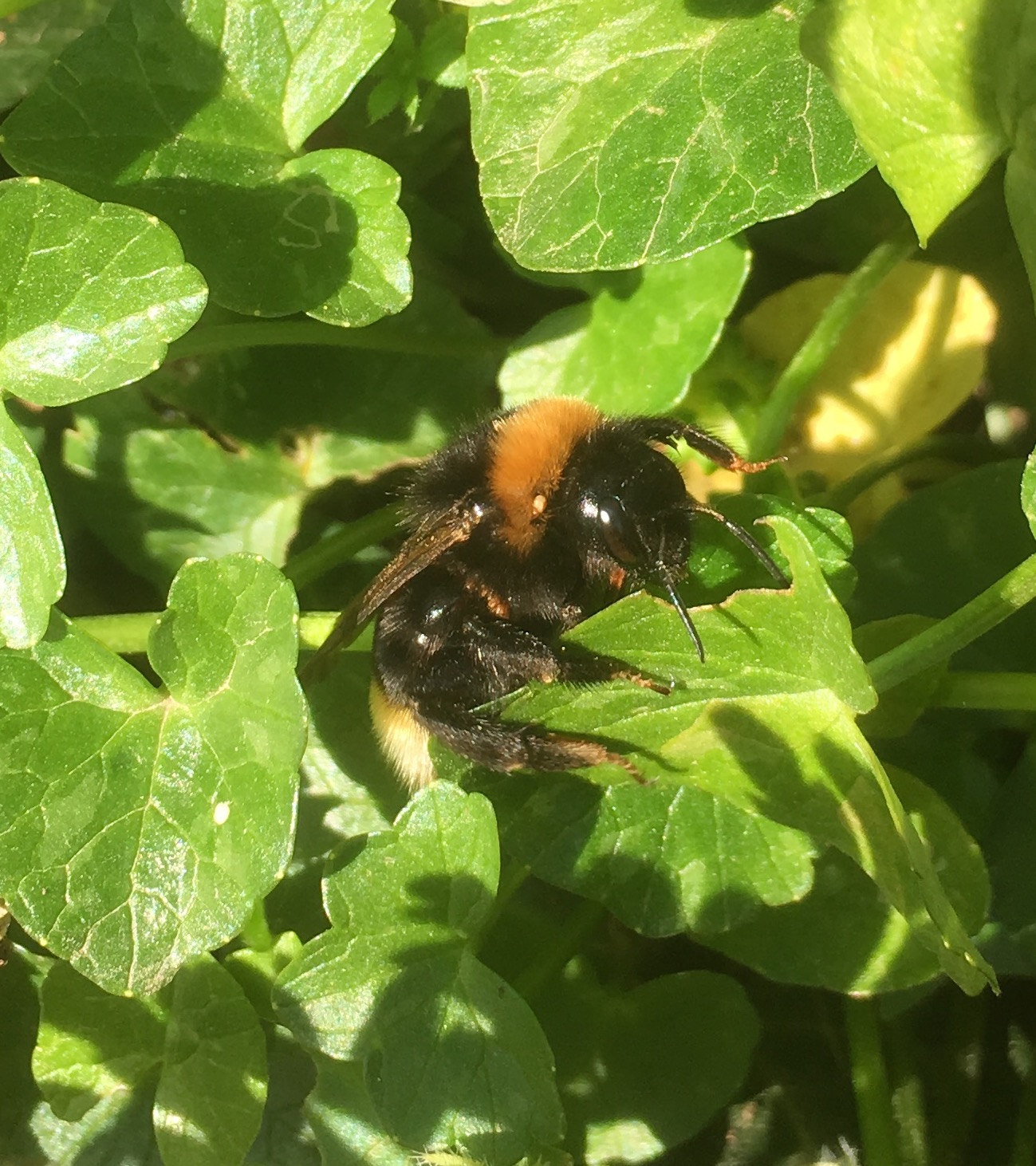
Emerging Queens
The first bumblebees we see in late winter and early spring are the overwintered Queen bees setting up a nest
-
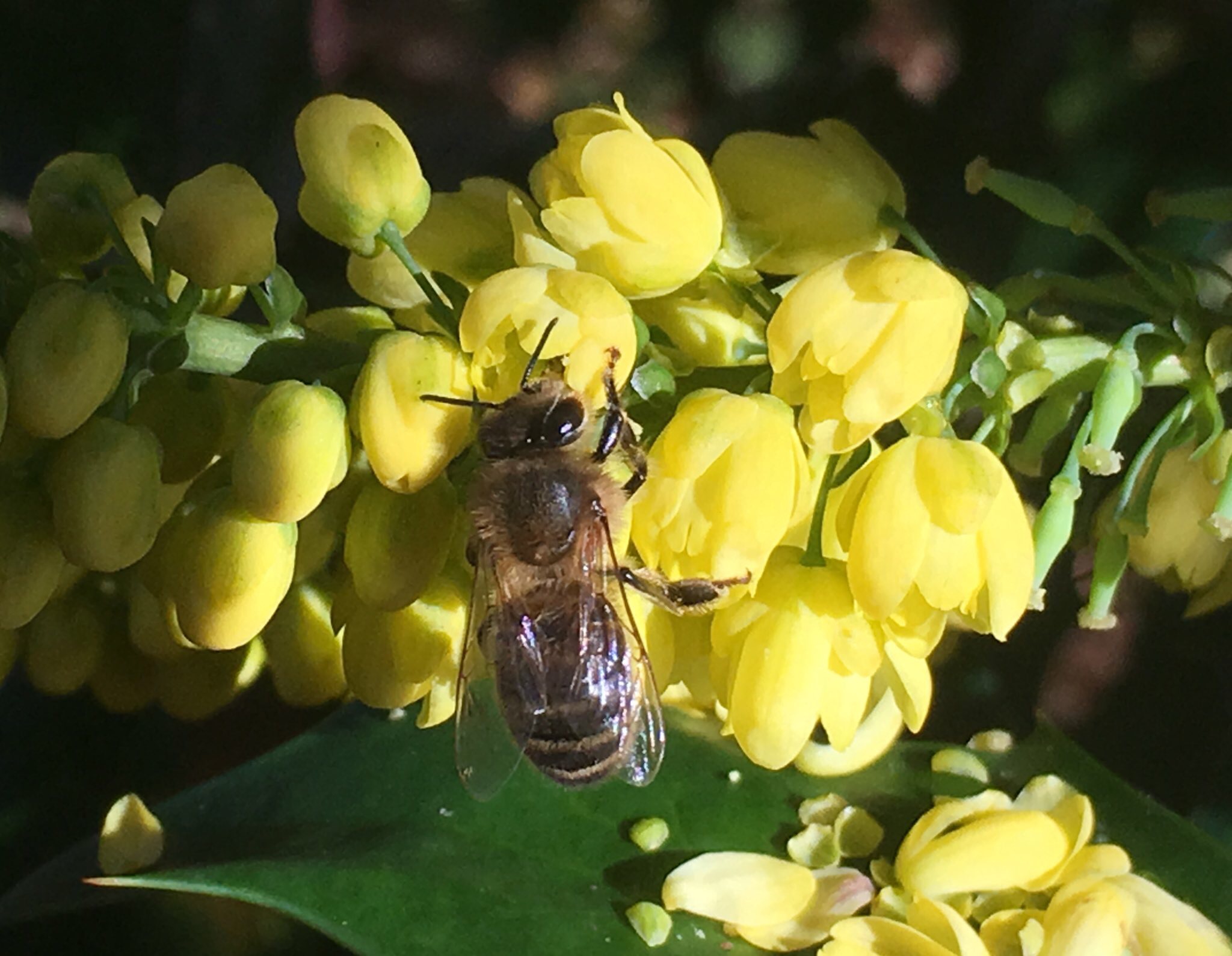
-

Award Winning
In November 2020, Jean Vernon was awarded a very prestigious award from The Garden Media Guild for her writing about bees